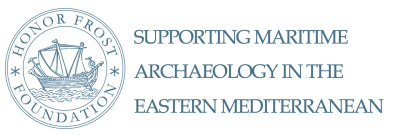Key Themes
The 2001 UNESCO Convention on the Protection of the Underwater Cultural Heritage provides a clear framework in international law for better protecting UCH. The Convention came into force in 2009 and almost 60 states have now ratified.
The HFF Steering Committee on UCH promotes ratification and implementation of the 2001 UNESCO Convention because it offers the best available means of improving the protection of UCH internationally, including in the eastern Mediterranean.
The Convention sets out the principles for protecting UCH, provides greater clarity in the respective rights and responsibilities of states towards UCH in different maritime zones, and provides a framework for co-operation between states. The Convention has also given rise to institutions and guidance that provide practical support to countries protecting UCH.
The Steering Committee believes that international protection of UCH will be considerably strengthened if the UK ratifies the 2001 UNESCO Convention. By ratifying, the UK will also gain major benefits: protecting shipwrecks around the world in which the UK has an interest; and enhancing the UK’s leading role in underwater archaeology.
Further Information:
In promoting the 2001 UNESCO Convention, the HFF Steering Committee on UCH seeks also to encourage practical improvement in the management of UCH through appropriate policies, legislation and administration.
The marine environment is complex and changing with many overlapping considerations and responsibilities. Even in countries with a relatively long history of protecting UCH, achieving and maintaining effective management of UCH can present seemingly intractable difficulties. Using a thematic approach, the Steering Committee applies research and dialogue to identify and understand such difficulties, and to provide a foundation for their resolution.
The Steering Committee has examined issues in the management of UCH in the UK to shed light on difficulties that face the management of UCH in other countries and regions, including in the eastern Mediterranean.
Further Information:
Many of our predecessors based their communities and made a living from being at the edge of the world’s seas and oceans. They left us a fascinating heritage that we can explore, enjoy and use to enrich today’s society. Whether in our towns and cities or in rural landscapes, the character of places draws upon the past, stimulating interest and enjoyment amongst those who live there, and attracting visitors from both near and far.
On land, the importance of heritage and its relevance both to society and economy is becoming increasingly recognised. However, the overall contribution of marine and maritime heritage seems largely unrecognised, despite its richness and existing impact.
The HFF Steering Committee on UCH supports greater recognition of the current social and economic contribution of marine and maritime cultural heritage whilst making the case for greater accessibility and effective management in future.
The Steering Committee’s work on social and economic benefits has concentrated so far on the situation in the UK but it is hoped that its findings will resonate in many other places around the world where the marine and maritime past forms a vibrant part of the cultural heritage.
Further Information:
- 2016 Policy Forum – Social and Economic Benefits: the seamless sea
- The Social and Economic Benefits of Marine and Maritime Cultural Heritage: towards greater accessibility and effective management (September 2015)
- The Seamless Sea – A Statement of Common Ground (March 2017)
- The Seamless Sea – A Guide for Practitioners (March 2017)
